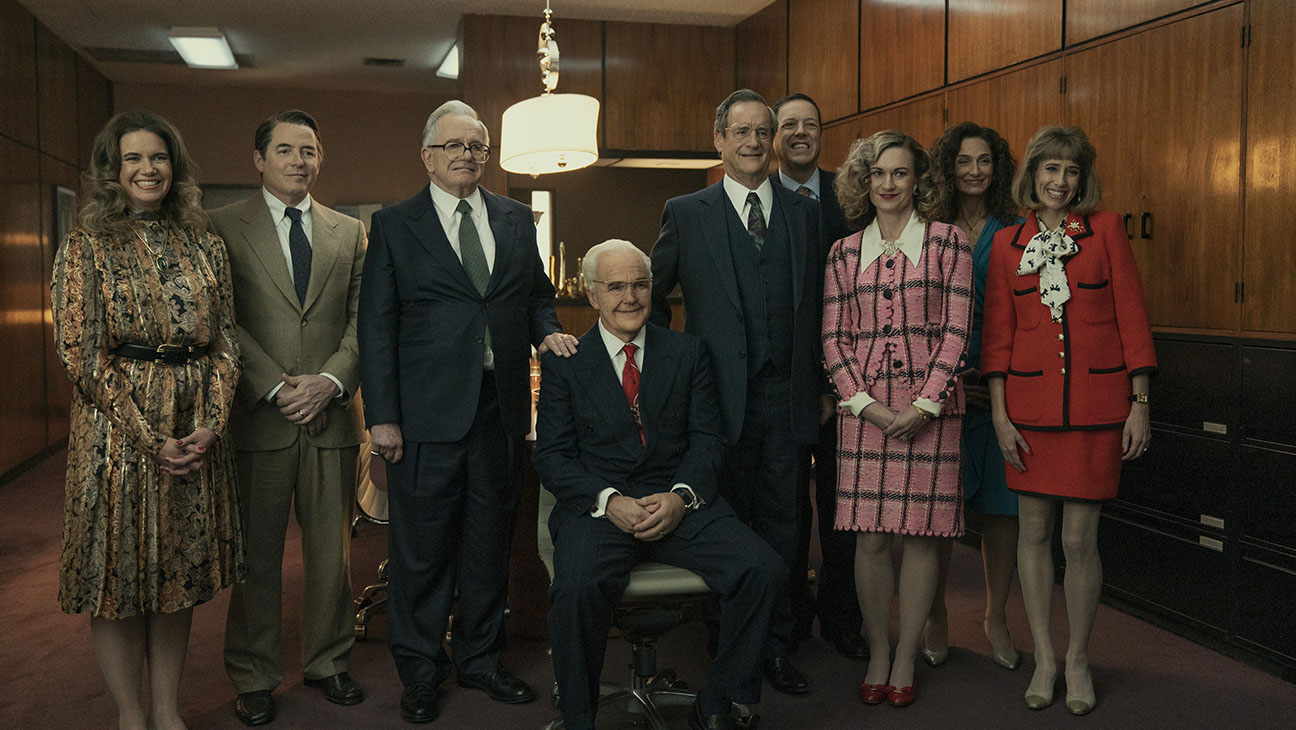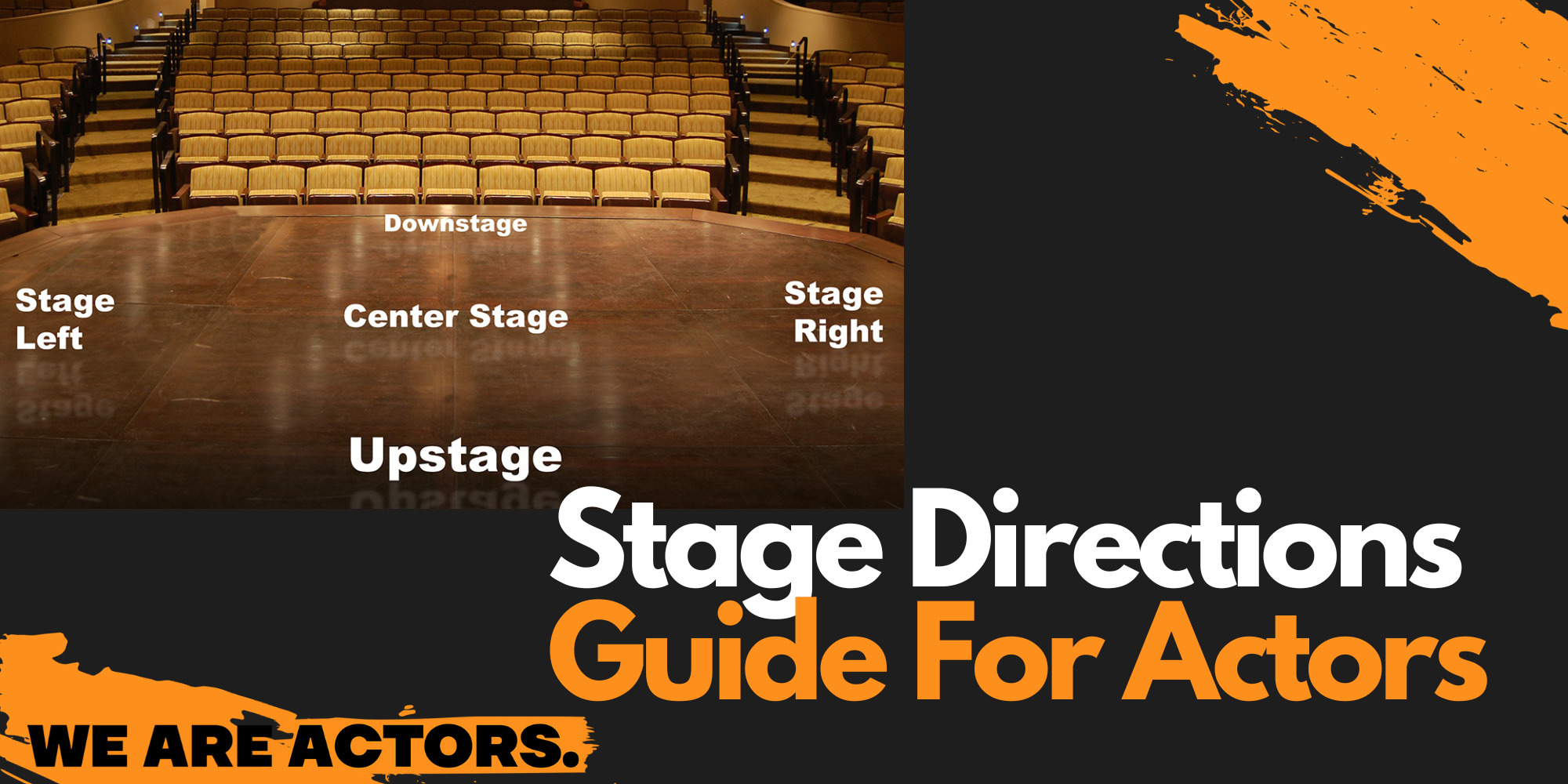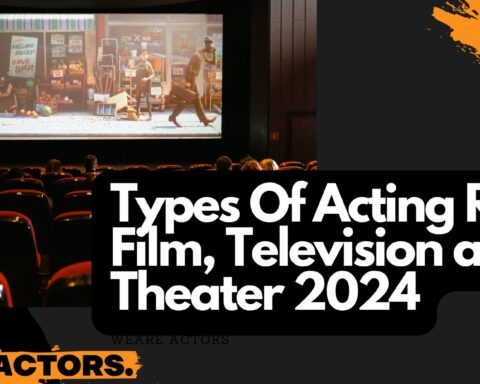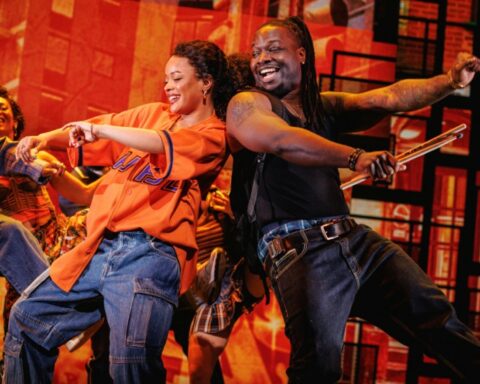
Shakespeare famously asked, “What’s in a name? That which we call a rose / By any other name would smell as sweet”, but today we’re asking, “What’s in a monologue?”, specifically, what’s in a comedy monologue? In theater and on film, a monologue is a long speech by one actor in a play or movie, oftentimes where they pour out their emotions, drawing the viewer in a very powerful way.
Monologues captivate viewers, while provoking feelings of happiness, sadness, and of course, laughter. Unlike dramatic monologues, which focus on human emotion and complexity, comedic monologues aim to entertain and bring laughter and humor to the stage or screen.
Comedic monologues go a step further than dramatic monologues by allowing us to laugh at ourselves, while also critiquing the world we live in. They also have the power to make audiences think and question what goes on around them while keeping the atmosphere light and engaging. Comedy monologues are a huge part of the amazing pieces that make up the world of performing arts.
But where did funny monologues start, and how did they become such an integral part of performing arts?
Classical Comedic Monologues
Classical comedic monologues famously entertained, amused, and brought joy to viewers. The art of comedic monologue has transformed through the ages, with different cultures and eras molding it into various forms and styles.
Origin in Ancient Greece and Rome
Comedic monologues have been around for centuries and even date back to ancient Greece and Rome, where the art of theater originated. But it was one of the greatest Greek comedians, Antiphanes who noted the difficulty comedians have when compared to writing tragedy:
“Tragedy is a lucky
kind of poetry in every respect. For firstly its plots
are recognized by the spectators
before anyone even speaks. So reminding them is all
the poet has to do. For if I just say Oedipus,
they know all the rest. His father Laius,
his mother Jocasta. His daughters, who his sons were,
what will happen to him, what he’s done. Again
if someone says Alclmaeon, immediately he’s mentioned
all his children, that in madness he killed
his mother, and Adrastus with a grievance at once
will come and then go off again . . .
Then when they when they’ve nothing more to say
and their plays have completely run dry,
they raise the crane as easy as their finger
and the spectators are satisfied.
We can’t do this. But we have to invent everything,
fresh names, what happened in the past,
the current situation, the end,
the beginning…”
Aristophanes
One of the earliest and most prominent figures in Greek theater is Aristophanes. His comedic plays like “Lysistrata” and “The Frogs” contained comedy monologues that were designed to invoke laughter while delivering sharp, satirical social and political views. He used mime, burlesque, and chorus to create a wildly entertaining and over the top comedy that was enjoyed by thousands of ancient Greeks.
Plautus
Forever the copycats, the Romans too, were no strangers to the art of the comedic monologue. Plautus, a Roman playwright, specialized in adapting Greek comedic plays for Roman audiences. Characters in his plays, such as “Pseudolus” and “Menaechmi,” often break the fourth wall to deliver comedy monologues, and create a sense of camaraderie with the audience.
In his play “Pseudolus,” the character of the same name offers a monologue that becomes memorable for its sheer self-awareness. When Pseudolus says, “For a long time you have held me in contempt, I know. I see that you have but little confidence in me. You wish me to be a villain; still, I will be of strict honesty”, the laughter generated is one of recognition and irony. Here, Plautus employs comedic irony as Pseudolus openly declares his deceitfulness even as he plots deception. This self-awareness works on multiple levels: it entertains the audience, it implicates them in the moral complexity of the character, and it engages them in the ethics of the unfolding plot.
Notable Classical Comedic Monologues
Among the countless comedic monologues in classical literature, some stand out for their brilliance. In Aristophanes’ “The Clouds,” a character named Strepsiades delivers a monologue lamenting his son’s extravagant lifestyle, with comical exaggerations that highlight the father’s naivety and desperation.
Using satire and a touch of perfect comedic timing, the ancient Greeks and Romans unknowingly provided the foundation for more modern comedic monologues. The second act was often the witty verbal sparring; also used by Shakespeare and now even modern comedic writers to get laughs, draw the viewers in and keep them entertained when otherwise there may be a lull in the play, and further develop the story.
Famous Classical Figures Known for Their Comedic Monologues
During the Dark Ages, there were minimal comedic plays, but the Renaissance era witnessed a complete change in performing arts, a time when comedic monologues became an integral part of performances. While Shakespeare is easily thought of when one considered famous playwrights, Molière is no slouch. Up against strict rules for playwrights, he brought his own unique flavor to comedic monologues, all while towing the line between appropriate and comedic.
Molière
Jean-Baptiste Poquelin, universally known by his stage name, Molière, was a towering figure in 17th-century French theater. His impact on the comedic monologue genre cannot be overstated. Works like “Tartuffe,” “The Misanthrope,” and “The Imaginary Invalid” are rife with comedy monologues that strike a balance between intellectual acumen and raw humor. In “Tartuffe,” the character of Orgon is bewitched by the apparent piety of Tartuffe, and his declarations of unwavering faith in him serve as both social commentary and comedic relief. Molière employed comedy monologues to delve into the psyches of his characters, often using them as mouthpieces to expose the hypocrisy and frivolity in French society of the time.
Molière’s works were often controversial, prompting bans and censures, but they endured precisely because they were relatable. His characters were not just comedic archetypes; they were multi-dimensional beings serving as microcosms of broader societal issues. His ability to blend wit with pointed critique makes his comedic monologues masterclasses in storytelling and satire, and they continue to be studied and performed today as pertinent observations of human nature and social constructs.
Excerpts and Analysis
In Molière’s “The Misanthrope,” the character of Alceste delivers lines that hold both comedic and reflective value. When he says: “A miserable scoundrel, whose shameful history everyone knows, comes off triumphantly, thanks to the blackest falsehood!,” we see a mix of satire and hyperbole. Alceste’s comment showcases Molière’s talent for exaggeration used as a comedic device. Beneath the laughter, there is a poignant critique of society’s moral shortcomings. Molière employs exaggeration to allow Alceste to voice an extreme viewpoint that, though not entirely fair or balanced, serves to challenge the complacency of the audience. The comedic power here lies in pushing the boundary of a recognizable truth to an extreme, encouraging the audience to reflect on their own behaviors and societal norms.
From ancient Rome to Renaissance France, comedic monologues acted as sharp tools for social commentary, all while entertaining the audience. Molière uses Alceste as a vessel to pour critique on society’s moral fabric, employing exaggeration to emphasize his points. The comedy becomes a lens through which we can examine our own ethical stances and societal roles.
Comedic monologues from classical figures like Aristophanes, Molière, and Plautus have left an indelible impact on the art of comedy. Their works set the stage (quite literally) for the elements that make comedy compelling: timing, exaggeration, irony, and social critique. Whether it’s in today’s stand-up comedy routines or modern theater, the essence of these classical monologues reverberates through time, influencing the way we understand and appreciate humor.
Classical Shakespearean Comedic Monologues
William Shakespeare, the iconic playwright from the Elizabethan era, left an indelible mark on the world of drama, not least in the form of comedy monologues that have been studied, performed, and revered for centuries. His monologues often serve as intricate psychological portraits, providing deep insight into the complexities of human nature and the human condition.
Shakespeare’s skills lay not only in his poetic language but also in his ability to encapsulate vast emotional landscapes and philosophical ideas within these monologues. Consider Katherina’s monologue in the comedic, “The Taming of the Shrew”:
Katherina: Fie, fie, unknit that threat’ning unkind brow
And dart not scornful glances from those eyes
To wound thy lord, thy king, thy governor.
It blots thy beauty as frosts do bite the meads,
Confounds thy fame as whirlwinds shake fair buds,
And in no sense is meet or amiable.
A woman moved is like a fountain troubled,
Muddy, ill-seeming, thick, bereft of beauty,
And while it is so, none so dry or thirsty
Will deign to sip or touch one drop of it.
Thy husband is thy lord, thy life, thy keeper,
Thy head, thy sovereign; one that cares for thee
And for thy maintenance; commits his body
To painful labor both by sea and land,
To watch the night in storms, the day in cold,
Whilst thou li’st warm at home, secure and safe;
And craves no other tribute at thy hands
But love, fair looks, and true obedience–
Too little payment for so great a debt.
Such duty as the subject owes the prince,
Even such a woman oweth to her husband;
And when she is froward, peevish, sullen, sour,
And not obedient to his honest will,
What is she but a foul contending rebel
And graceless traitor to her loving lord?
I am ashamed that women are so simple
To offer war where they should kneel for peace,
Or seek for rule, supremacy, and sway,
Whey they are bound to serve, love, and obey.
Why are our bodies soft and weak and smooth,
Unapt to toil and trouble in the world,
But that our soft conditions and our hearts
Should well agree with our external parts?
Come, come, you froward and unable worms,
My mind hath been as big as one of yours,
My heart as great, my reason haply more,
To bandy word for word and frown for frown.
But now I see our lances are but straws,
Our strength as weak, our weakness past compare,
That seeming to be most which we indeed least are.
Then vail your stomachs, for it is no boot,
And place your hands below your husband’s foot,
In token of which duty, if he please,
My hand is ready, may it do him ease.
Twelfth Night famously displays Shakespeare’s love of dramatic comedies, with tangled lovers, mistaken identities, disguises, and all manner of trickery. But the short exchanges between Sir Toby Belch and Sir Andrew Aguecheek and their mockery of Malvolio made this play funny and appealing to all. While Malvolio gifts the hearers his dramatic monologues, the other two men respond with snappy, snarky comments.
Act II, Scene 5:
Malvolio. ‘Tis but fortune; all is fortune. Maria once told
me she did affect me: and I have heard herself come
thus near, that, should she fancy, it should be one
of my complexion. Besides, she uses me with a more
exalted respect than any one else that follows her.
What should I think on’t?
Sir Toby Belch. Here’s an overweening rogue!
“Twelfth Night” – Act II, Scene 5:
Malvolio. ‘I may command where I adore.’ Why, she may command
me: I serve her; she is my lady. Why, this is
evident to any formal capacity; there is no
obstruction in this: and the end,—what should
that alphabetical position portend? If I could make
that resemble something in me,—Softly! M, O, A,
I,—
Sir Toby Belch. O, ay, make up that: he is now at a cold scent.
And then there is “As You Like It”. The famous pastoral comedy that follows Rosalind as she wanders through the Forest of Arden, escaping from her uncle’s court. The most famous individual in the play is without a doubt, Jaques, a melancholy and philosophical character, delivers the famous “All the world’s a stage” monologue. Despite its often serious interpretation, the monologue has comedic elements, as Jaques describes the ridiculousness of human life from infancy to old age.
“As You Like It” – Act II, Scene 7:
Jaques: “All the world’s a stage,
And all the men and women merely players.
They have their exits and their entrances,
And one man in his time plays many parts,
His acts being seven ages. At first the infant,
Mewling and puking in the nurse’s arms.
Then, the whining school-boy, with his satchel
And shining morning face, creeping like snail
Unwillingly to school. And then the lover,
Sighing like furnace, with a woeful ballad
Made to his mistress’ eyebrow. Then, a soldier,
Full of strange oaths, and bearded like the pard,
Jealous in honour, sudden and quick in quarrel,
Seeking the bubble reputation
Even in the cannon’s mouth. And then the justice,
In fair round belly, with good capon lin’d,
With eyes severe, and beard of formal cut,
Full of wise saws, and modern instances,
And so he plays his part. The sixth age shifts
Into the lean and slipper’d pantaloon,
With spectacles on nose, and pouch on side,
His youthful hose well sav’d, a world too wide
For his shrunk shank, and his big manly voice,
Turning again toward childish treble, pipes
And whistles in his sound. Last scene of all,
That ends this strange eventful history,
Is second childishness and mere oblivion,
Sans teeth, sans eyes, sans taste, sans everything.”
“A Midsummer Night’s Dream” – Act V, Scene 1: Bottom
After being transformed into a donkey and then transformed back, Bottom reflects on his “dream.” The comedy arises from Bottom’s cluelessness and his high opinion of his own experience.
Bottom: “I have had a dream, past the wit of man to say what dream it was: man is but an ass, if he go about to expound this dream. Methought I was—there is no man can tell what. Methought I was, and methought I had, but man is but a patched fool, if he will offer to say what methought I had.”
“Much Ado About Nothing” – Act III, Scene 3: Dogberry
Dogberry, the comically inept constable, attempts to instruct his night watchmen on their duties, demonstrating his lack of understanding with malapropisms and nonsensical logic.
Dogberry: “First, who think you the most desertless man to be constable? … Truly, I would not hang a dog by my will, much more a man who hath any honesty in him.”
These monologues offer a window into Shakespeare’s comedic genius, each with its own style and thematic undertones. They entertain but also provoke thought—revealing the complexities of human nature, societal norms, and the enduring power of comedy to illuminate them.
Funny Monologues from Movies
Funny monologues hold a special place in the world of performing arts, often serving as moments of revelation, reflection, or comedic relief. In cinema, the monologue transforms into a powerful storytelling device that can illuminate character traits, advance the plot, and invoke emotional responses. While the theatrical tradition of monologues has deep roots, cinema has redefined and refined its usage, particularly in the realm of comedy.
Early Film Monologues and the Transition from Stage to Screen
The transition from stage to screen also marked a shift in how comedy monologues were employed. Early filmmakers, heavily influenced by the theatrical tradition, used monologues as a straightforward means to express inner thoughts or narrate a plot. However, the new medium soon began to explore its unique capacities for visual storytelling, including the use of comedic monologues to convey emotion and humor through expression and timing rather than relying solely on spoken words.
Silent Films and the Power of Visual Comedy
The era of silent films showcased the universal language of visual comedy. While verbal monologues were not possible, silent film stars like Charlie Chaplin and Buster Keaton utilized physical comedy in scenes that functioned similarly to comedy monologues. These sequences often involved complex, exaggerated gestures and facial expressions to convey humor and sentiment, proving that comedy monologues could exist even without words.
The “Talkies” and the Introduction of Verbal Comedic Monologues
The arrival of sound in cinema opened new dimensions for comedic monologues. With the “talkies,” dialogue took center stage. Verbal wit, timing, and tone became powerful tools for comedy, bringing new life to the monologue form. Performers could now engage with the audience using both visual and aural elements, expanding the potential for humor and complexity.
Iconic Comedic Monologues in Film
“The Princess Bride” – Vizzini’s inconceivable monologue.
Vizzini: “But it’s so simple. All I have to do is divine from what I know of you. Are you the sort of man who would put the poison into his own goblet, or his enemy’s? Now, a clever man would put the poison into his own goblet, because he would know that only a great fool would reach for what he was given. I’m not a great fool, so I can clearly not choose the wine in front of you. But you must have known I was not a great fool; you would have counted on it, so I can clearly not choose the wine in front of me.
Not remotely. Because iocane comes from Australia, as everyone knows. And Australia is entirely peopled with criminals. And criminals are used to having people not trust them, as you are not trusted by me. So I can clearly not choose the wine in front of you. Yes — Australia, and you must have suspected I would have known the powder’s origin, so I can clearly not choose the wine in front of me.
You’ve beaten my giant, which means you’re exceptionally strong. So, you could have put the poison in your own goblet, trusting on your strength to save you. So I can clearly not choose the wine in front of you. But, you’ve also bested my Spaniard which means you must have studied. And in studying, you must have learned that man is mortal so you would have put the poison as far from yourself as possible, so I can clearly not choose the wine in front of me.”
“Ferris Bueller’s Day Off” – Ferris’ opening monologue.
Ferris Bueller: “Incredible! One of the worst performances of my career and they never doubted it for a second. How could I possibly be expected to handle school on a day like this? This is my ninth sick day this semester. It’s getting pretty tough coming up with new illnesses. If I go for ten, I’m probably gonna have to barf up a lung, so I’d better make this one count. The key to faking out the parents is the clammy hands. It’s a good non-specific symptom. I’m a big believer in it. A lot of people will tell you that a good phony fever is a dead lock, but, uh, you get a nervous mother, you could wind up in a doctor’s office. That’s worse than school. You fake a stomach cramp, and when you’re bent over, moaning and wailing, you lick your palms. It’s a little childish and stupid, but then, so is high school.
Life moves pretty fast. If you don’t stop and look around once in awhile, you could miss it. I do have a test today, that wasn’t bull-s–t. It’s on European socialism. I mean really, what’s the point. I’m not European. I don’t plan on being European, so who gives a crap if they’re socialists. They could be fascist anarchists and it still wouldn’t change the fact that I don’t own a car. (Singing in shower) It’s not that I condone fascism or any ‘ism’ for that matter. Ism’s, in my opinion, are not good. A person should not believe in an ‘ism,’ he should believe in himself. I quote John Lennon: ‘I don’t believe in Beatles. I just believe in me.’ A good point there. After all, he was the walrus. I could be the walrus. I’d still have to bum rides off of people.”
“Annie Hall” – Alvy Singer’s opening thoughts.
Annie Hall: “There’s an old joke. Uh, two elderly women are at a Catskills mountain resort, and one of ’em says: “Boy, the food at this place is really terrible.” The other one says, “Yeah, I know, and such … small portions.” Well, that’s essentially how I feel about life. Full of loneliness and misery and suffering and unhappiness, and it’s all over much too quickly. The-the other important joke for me is one that’s, uh, usually attributed to Groucho Marx, but I think it appears originally in Freud’s wit and its relation to the unconscious. And it goes like this-I’m paraphrasing: Uh …” I would never wanna belong to any club that would have someone like me for a member.” That’s the key joke of my adult life in terms of my relationships with women. Tsch, you know, lately the strangest things have been going through my mind, ’cause I turned forty, tsch, and I guess I’m going through a life crisis or something, I don’t know.I, uh … and I’m not worried about aging. I’m not one o’ those characters, you know. Although I’m balding slightly on top, that’s about the worst you can say about me. I, uh, I think I’m gonna get better as I get older, you know? I think I’m gonna be the heralding virile type, you know, as opposed to say the, uh, distinguished gray, for instance, you know? ‘Less I’m neither o’ those two. Unless I’m one of those guys with saliva dribbling out of his mouth who wanders into a cafeteria with a shopping bag screaming about socialism.(Sighing)Annie and I broke up and I-I still can’t get my mind around that. You know, I-Ikeep sifting the pieces of the relationship through my mind and-and examining my life and tryin’ to figure out where did the screw-up come, you know, and a year ago we were… tsch, in love. You know, and-and-and And it’s funny, I’m not-I’m not amorose type. I’m not a depressive character I-I-I, uh,(Laughing)you know, I was a reasonably happy kid, I guess. I was brought up in Brooklyn during World War II.”
The Art of Delivering Comedic Monologues on Film
Timing and Rhythm
One of the most critical elements that distinguishes a forgettable comedic monologue from an unforgettable one is timing. In the world of film, where every second is a valuable piece of real estate, the rhythm of a monologue can either make it sink or soar. The timing isn’t just about speed; it’s about knowing when to pause for dramatic or comedic effect, how to stress certain words for emphasis, and even how to incorporate physical gestures and facial expressions in sync with the spoken lines. A well-timed monologue can bring out hidden layers in a script, infusing it with a vitality that can captivate an audience.
Great comedic actors often have an innate sense of timing, a built-in metronome that guides them. Consider the greats like Robin Williams or Melissa McCarthy; their comedic timing seems almost instinctual. They understand not just the rhythm of their lines but also how their timing will interact with other elements of the film, such as editing, sound effects, and the reactions of other characters. It’s this complex interplay that elevates their performances, transforming good comedy monologues into iconic ones.
Interaction with the Audience (Breaking the Fourth Wall)
Another fascinating technique in the realm of comedic monologues on film is breaking the fourth wall or directly addressing the audience. This method has been used to great effect in a range of films, from “Ferris Bueller’s Day Off” to “Deadpool.” The act of breaking the fourth wall invites the audience into the internal world of the character, establishing a direct line of communication that makes the humor even more engaging.
When executed skillfully, this form of audience interaction serves to intensify the comedy. It’s as if the character is sharing an inside joke with the viewers, creating a more intimate and relatable experience. This technique is also a powerful tool for character development. Speaking directly to the audience allows characters to reveal their thoughts, motivations, and internal conflicts in a way that feels immediate and genuine.
Deadpool: Wha- Oh! Oh, hello. I know, right? Who’s balls did I have to fondle to get my very own movie? I can’t tell you, but it does rhyme with Pullverine. And let me tell you; (In an Australian accent) he’s got a nice pair of smooth criminals down under. Anyway, I got places to be, a face to fix, and – oh! Bad guys to kill.
Comedy Monologues from Plays
Over the centuries, the form has changed to fit the styles and sensibilities of each era—from the earthy, situational comedy in Shakespearean plays to the biting social satire in the works of Oscar Wilde to the existential and often absurdist humor found in modern and contemporary dramas. These are not just lines to be recited; they are mini-stories, complete with a beginning, a climax, and an end, each contributing to the larger narrative tapestry of the play. Whether you’re doubled over in laughter at a farcical exaggeration or chuckling at the irony in a character’s self-reflection, comedic monologues offer a rich, nuanced experience that engages both the mind and the funny bone.
Historical Context: From Shakespearean Jesters to Modern Farce
The history of comedic monologues in theater is as rich and varied as the art form itself. From the jesters of Shakespearean drama who used humor as a tool for social critique to the farcical characters in modern plays who focus on the absurdities of life, comedic monologues have been a staple. In fact, these comedy monologues are often the moments that resonate most deeply with audiences, remembered long after the curtain falls.
“A Midsummer Night’s Dream” – Puck’s monologues.
Puck: My mistress with a monster is in love. Near to her close and consecrated bower, while she was in her dull and sleeping hour, a crew of patches, rude mechanicals, that work for bread upon Athenian stalls, were met together to rehearse a play intended for great Theseus’ nuptial day. The shallowest thickskin of that barren sort, who Pyramus presented in their sport, forsook his scene and entered in a brake. When I did him at this advantage take, an ass’s nole I fixèd on his head. Anon his Thisby must be answerèd, and forth my mimic comes. When they him spy, as wild geese that the creeping fowler eye, or russet-pated choughs, many in sort, rising and cawing at the gun’s report, sever themselves and madly sweep the sky; so at his sight away his fellows fly, and at our stamp here o’er and o’er one falls; he murder cries and help from Athens calls. Their sense thus weak, lost with their fears thus strong, made senseless things begin to do them wrong, for briers and thorns at their apparel snatch: some, sleeves; some, hats; from yielders all things catch. I led them on in this distracted fear and left sweet Pyramus translated there, when in that moment (so it came to pass) Titania waked, and straightway loved an ass.
“The Importance of Being Earnest” – Lady Bracknell’s interrogations.
Lady Bracknell: Well, I must say, Algernon, that I think it is high time that Mr. Bunbury made up his mind whether he was going to live or die. This shilly-shallying with the question is absurd. Nor do I in any way approve of the modern sympathy with invalids. I consider it morbid. Illness of any kind is hardly a thing to be encouraged in others. Health is the primary duty of life. I am always telling that to your poor uncle, but he never seems to take much notice . . . as far as any improvement in his ailment goes. Well, Algernon, of course if you are obliged to be beside the bedside of Mr. Bunbury, I have nothing more to say. But I would be much obliged if you would ask Mr. Bunbury, from me, to be kind enough not to have a relapse on Saturday, for I rely on you to arrange my music for me. It is my last reception, and one wants something that will encourage conversation, particularly at the end of the season when every one has practically said whatever they had to say, which, in most cases, was probably not much.
Contemporary Comedic Plays and Their Standout Funny Monologue
“Noises Off” by Michael Frayn.
“It’s no good you going on. I can’t open sardines and answer the phone. I’ve only got one pair of feet. Hello…. Yes, but there’s no one here, love…. No, Mr. Brent’s not here…He lives here, yes, but he don’t live here now because he lives in Spain… Mr. Philip Brent, that’s right…. The one who writes the plays, that’s him, only now he writes them in Spain… No, she’s in Spain, too, they’re all in Spain, there’s no one here… Am I in Spain? No, I’m not in Spain, dear. I look after the house for him, but I go home at one o’clock on Wednesday, only I’ve got a nice plate of sardines to put my feet up with, because it’s the royal what’s-it’s called on the telly — the royal you know — where’s the paper, then? And if it’s to do with letting the house then you’ll have to ring the house-agents, because they’re the agents for the house…. Squire Squire, Hackham and who’s the other one…? No, they’re not in Spain, they’re next to the phone in the study. Squire, Squire, Hackham, and hold on, I’ll go and look. Always the same, isn’t it. Soon as you take the weight off your feet, down it all comes on your head.”
The Art and Challenges of Performing a Comedic Monologue on Stage
Audience Engagement
The dynamics of performing a comedic monologue on stage go far beyond the mere recitation of lines. One of the key elements that distinguish a standout performance is audience engagement. A successful actor perceives the audience not as a passive recipient but as an active participant in the comedic experience. Mastery over timing is crucial in this regard. Knowing when to pause for laughs or even when to stretch a moment for dramatic emphasis requires a keen awareness of audience reactions. Sometimes, the audience may not react as expected, necessitating on-the-spot alterations to the delivery. This fluid, almost symbiotic relationship between the performer and the audience enriches the theatrical experience and can elevate a monologue from good to unforgettable. The audience’s laughter serves both as a reward and a guide, providing real-time feedback that the actor can use to calibrate their performance.
In the execution of comedic monologues, the subtleties often make all the difference, one of which is eye contact. When there’s eye contact between the actor and the audience, the performance ascends to a new level of engagement. This simple yet effective technique can make certain punchlines hit harder and elicit stronger reactions. It allows the actor to gauge the audience’s response in real-time, providing opportunities to adjust timing and delivery for maximum impact.
Eye contact can turn a monologue into a dialogue of sorts, a shared experience that moves beyond mere recitation of lines. It brings the audience into the world of the performance, making them feel seen and included in the comedy. In essence, eye contact, when wielded effectively, adds a layer of authenticity and immediacy to a comedic monologue. It can be the difference between a performance that is simply amusing and one that is truly memorable.
Another significant aspect of audience engagement is capturing the viewers’ attention. If the actor fails to capture the audience’s attention, there may be “no interest whatsoever” in even the most clever punchlines or narrative arcs. This lack of interest can result in devastation for a performance, turning a potentially hilarious monologue into a forgettable one.
Physicality and Movement
While the words in a monologue are undoubtedly important, the physicality and movement accompanying them are equally significant. The actor’s body becomes a canvas upon which additional layers of meaning and comedy are painted. A simple roll of the eyes, a well-timed shrug, or a dramatic slump can evoke laughter just as effectively as a well-placed punchline. Physical comedy—whether subtle or overt—has the power to amplify the humor in a monologue and make it memorable.
The incorporation of props can add another layer, from a comical use of a walking cane to a ridiculous hat that becomes the focal point of the joke. However, balancing physicality and verbal delivery is an art form in itself. Overemphasis on physical movements can cloud verbal wit, while insufficient physical expression can make the monologue feel flat and one-dimensional. The challenge for the actor is to marry the physical and verbal aspects seamlessly, creating a holistic performance that capitalizes on the strengths of both forms of expression.
For instance, an “imitating guy” approach, where an actor mimics the quirks and mannerisms of a certain character or stereotype, can bring depth and hilarity to a monologue. This technique taps into the audience’s familiarity with the imitated persona, bringing instant recognition and when done well, immediate laughter. A monologue that might otherwise seem standard can be transformed into a standout performance when the actor masters the art of imitation. Such nuances highlight the versatility and range required in comedic acting.
One-Minute Comedy Monologues
In comedy, timing is everything—and sometimes less is more. The power of brevity in comedy lies in its ability to distill complex ideas, scenarios, and punchlines into a concise package that delivers a maximum comedic punch. Short-form comedy, particularly one-minute monologues, presents unique challenges and opportunities for both the writer and the performer.
The Appeal and Challenge of One-Minute Monologues
One-minute monologues offer a tantalizing platform for delivering quick, sharp humor that connects with audiences. The brevity forces the performer to make every word and gesture count. While this format is appealing due to its quick impact and potential for rapid-fire laughs, it presents a significant challenge in terms of pacing, timing, and content. There’s no room for filler; every element must contribute to the comedic goal.
Impactful Delivery
To make a short monologue effective, the delivery has to be spot-on. Because the time is limited, the actor has to instantly engage the audience and maintain that engagement through expert timing, tone modulation, and physicality. A single misstep in delivery can disrupt the flow and dilute the impact of the monologue. The actor playing this role not only needs impeccable timing but also the ability to express a range of emotions. It’s not just about delivering lines; it’s about engaging with the audience—right down to having such a beautiful smile that can turn a stern interrogation into a moment of levity and connection.
Concise Narrative Arcs
Even within the short time frame, a successful one-minute monologue should have a narrative arc, however minimal. This could range from a simple set-up and punchline to a more complex sequence with a beginning, middle, and satisfying conclusion. This structure adds a layer of coherence and completeness to the performance, making it more memorable.
Noteworthy One-Minute Comedic Monologues from Various Mediums
Short Plays
Works like David Ives’ “All in the Timing” feature succinct monologues that encapsulate entire worlds within a minute, using comedy to explore philosophical ideas. Sometimes, the comedy isn’t as philosophical, as evidenced by the short comedic monologue from Hairspray:
Tracy: “Why do they have to be so mean? “You’re short, you’re stout, you’re not Council material.” I wear the latest fashions, I keep up with all the styles. I’m teasing my hair as high as I can! (She sprays her hair with hairspray) Will they give me a chance? Encouragement? Appreciation? No, all I ever hear is… Detention! Is there no pity for a teen just trying to fit in.”
Television
Shows like “Saturday Night Live” or “Fleabag” employed quick, humorous monologues to satirize everything from pop culture to politics to human behavior.
Fleabag: “I want someone to tell me what to wear in the morning. No, I want someone to tell me what to wear every morning. I want someone to tell me what to eat. What to like. What to hate. What to rage about. What to listen to. What band to like. What to buy tickets for. What to joke about. What not to joke about. I want someone to tell me what to believe in. Who to vote for and who to love and how to…tell them. I just think I want someone to tell me how to live my life, Father, because so far, I think I’ve been getting it wrong. And I know that’s why people want someone like you in their lives, because you just tell them how to do it. You just tell them what to do and what they’ll get out of the end of it, even though I don’t believe your bullshit and I know that scientifically nothing that I do makes any difference in the end, anyway, I’m still scared. Why am I still scared? So just tell me what to do. Just fucking tell me what to do, Father.”
Online Platforms and Sketches
YouTube and TikTok are filled with creators who have honed the art of the one-minute monologue, using the form to deliver quick, biting social commentary or character sketches.
Tips and Techniques for Performing Short Comedic Monologues
Precision in Delivery
Given the time constraint, every word must be pronounced clearly, and every pause should be deliberate. Unclear delivery can muddle the punchline and compromise the monologue’s effectiveness.
Emphasis on Punchlines
In short comedic monologues, the punchline often serves as the climax. Mastery in delivering the punchline, be it through a sudden change in tone, a dramatic pause, or a physical gesture, can make or break the performance.
The one-minute comedic monologue is a formidable medium that, despite its brevity or perhaps because of it has the power to leave a lasting impression. Whether you’re a writer or performer, understanding the nuances of this short form can help you maximize its comedic potential.
Conclusion
Comedic monologues have not only stood the test of time but have also adapted to suit modern mediums and sensibilities, making them a cornerstone in the world of performance art. From the eloquent jesters in Shakespearean drama to the quirky personalities in contemporary farce, monologues offer an intimate glance into the inner workings of a character, often serving as turning points in the narrative. They remain evergreen due to their ability to encapsulate large themes and emotions in short, powerful speeches. This lasting appeal transcends generational divides, making comedic monologues as relevant today as they were hundreds of years ago.
Over time, these monologues have evolved, not only in their thematic undertones but also in their length and method of delivery. Short, one-minute monologues, for example, have gained immense popularity in today’s fast-paced world, demonstrating the potency of brevity in comedy. This transformation underlines the adaptability and enduring charm of the comedic monologue in a world perpetually hungry for relatable content and humor.
Comedy Monologues FAQs
What is a humorous monologue?
The humorous monologue, at its core, is a blend of comedic elements and storytelling. It often uses satire, irony, or straightforward humor to communicate a message or showcase a character's persona. Though predominantly funny, the best humorous monologues often have an underlying thread of seriousness or profundity.
What are the best monologues for an audition?
While what counts as "best" can be highly subjective, the rule of thumb is to choose a monologue that can both entertain and display your acting range. Something that allows you to explore different emotions while maintaining a comedic edge could set you apart from other auditionees.
What monologues are overdone?
Monologues from blockbuster films, Pulitzer-winning plays, or those listed in "Best Monologues" compilations tend to be overdone. Choosing less recognized but equally compelling pieces may provide a fresh perspective and make your performance stand out.







